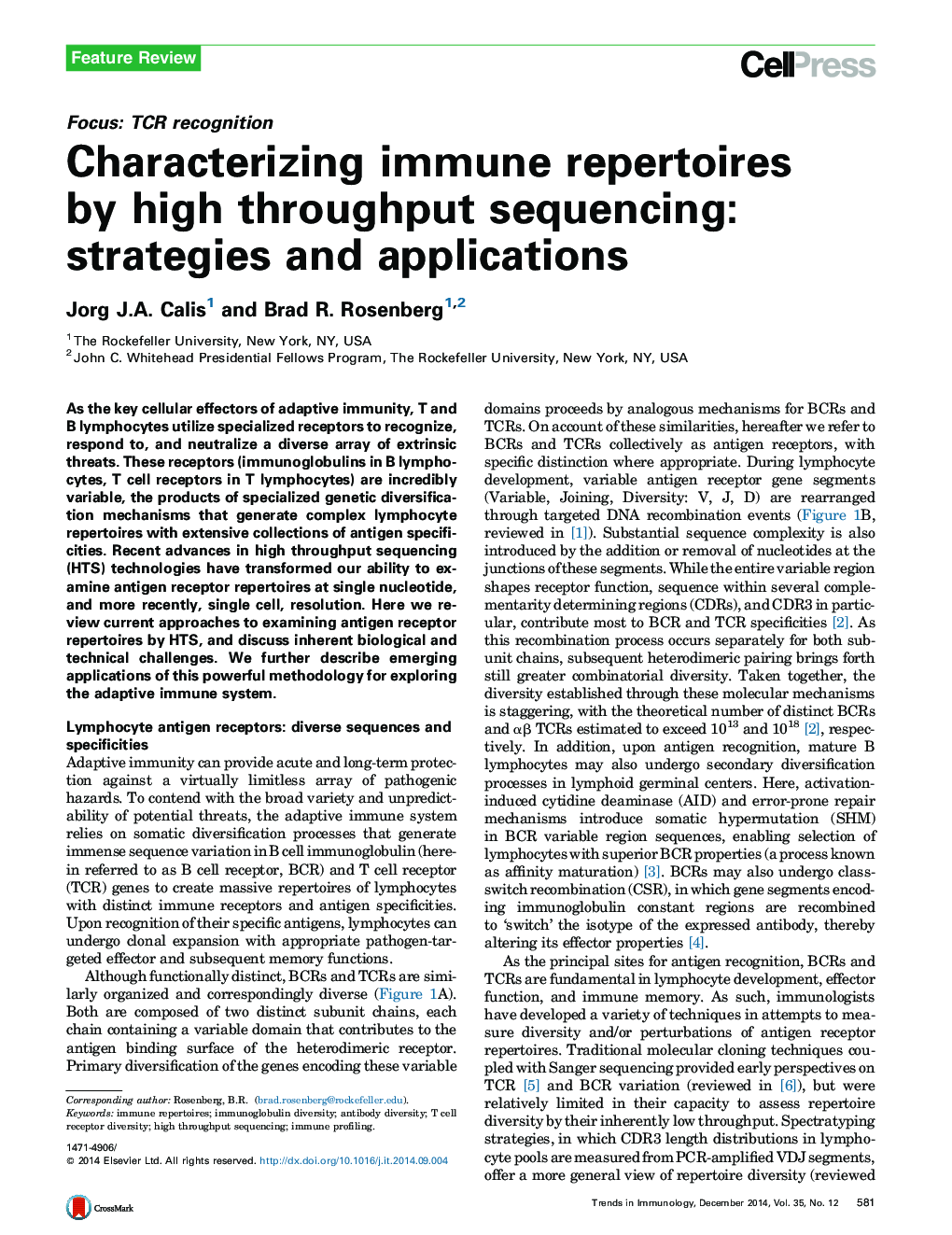| Article ID | Journal | Published Year | Pages | File Type |
|---|---|---|---|---|
| 4359817 | Trends in Immunology | 2014 | 10 Pages |
•Diverse lymphocyte repertoires can be analyzed by high throughput sequencing.•Immunoglobulin and T cell receptor genes are technically challenging sequencing targets.•Various methods and analyses can be used for antigen receptor repertoire sequencing.•High throughput repertoire sequencing has applications in basic and clinical immunology.
As the key cellular effectors of adaptive immunity, T and B lymphocytes utilize specialized receptors to recognize, respond to, and neutralize a diverse array of extrinsic threats. These receptors (immunoglobulins in B lymphocytes, T cell receptors in T lymphocytes) are incredibly variable, the products of specialized genetic diversification mechanisms that generate complex lymphocyte repertoires with extensive collections of antigen specificities. Recent advances in high throughput sequencing (HTS) technologies have transformed our ability to examine antigen receptor repertoires at single nucleotide, and more recently, single cell, resolution. Here we review current approaches to examining antigen receptor repertoires by HTS, and discuss inherent biological and technical challenges. We further describe emerging applications of this powerful methodology for exploring the adaptive immune system.
